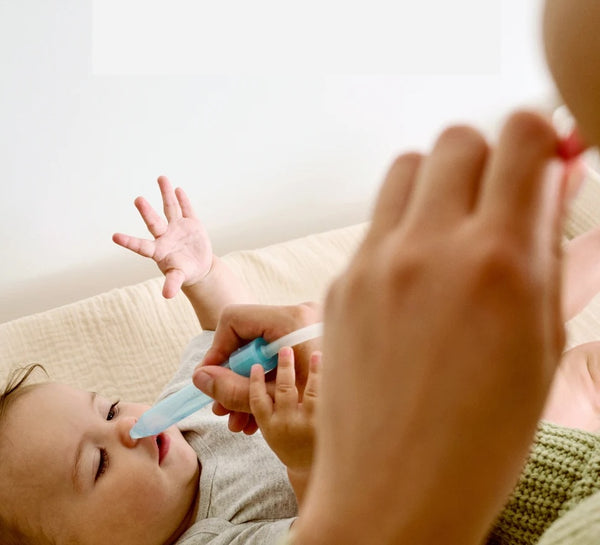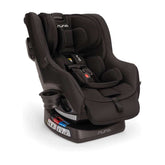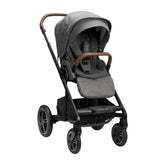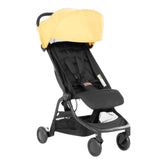First Aid Kit Essentials for Babies: How to Be Prepared

When it comes to caring for a baby, preparedness is key. From minor scrapes to more serious injuries, having a well-stocked first aid kit can make all the difference. Understanding what first aid you need for a newborn and how to effectively use these items can offer peace of mind and ensure your little one receives the best care possible. Let’s take a look at what to include in a baby’s first aid kit, so that you’re prepared for any emergency.
What to Include in a Baby's First Aid Kit
Basic First Aid Supplies for Babies
A baby first aid kit should contain basic supplies to handle minor injuries and common ailments. Here are the essentials:
- Adhesive Bandages: Stock a variety of sizes suitable for small cuts and scrapes.
- Gauze Pads and Rolls: For cleaning and covering wounds.
- Adhesive Tape: To secure gauze and bandages.
- Antiseptic Wipes: Essential for cleaning wounds to prevent infection.
- Hydrocortisone Cream: For insect bites and skin irritations.
- Tweezers: Useful for removing splinters and debris from wounds.
- Digital Thermometer: Accurate temperature readings are crucial in managing your baby’s health
- Scissors: For cutting tape, gauze, and clothing if necessary.
- Saline Solution: For cleaning wounds and clearing nasal congestion.
Baby Medicine Kit Essentials
In addition to basic first aid supplies, your kit should include medications specifically formulated for babies:
- Infant Acetaminophen: For reducing fever and relieving pain. Always follow the dosage instructions and consult your pediatrician.
- Infant Ibuprofen: Another option for fever and pain relief, suitable for babies over six months.
- Oral Rehydration Solution: To prevent dehydration from diarrhea or vomiting.
- Gas Relief Drops: To soothe a colicky baby.
- Teething Gel: For easing teething pain.
- Antihistamine Cream: For allergic reactions and insect bites.
- Nasal Aspirator: To clear your baby’s nasal passages, especially during a cold. Check out ANB Baby’s selection of nasal relief products.

Best Baby First Aid Kit
When choosing the best baby first aid kit, consider the following factors:
- Comprehensive Contents: Ensure the kit includes a wide range of items to cover various emergencies.
- Portability: A kit that is easy to carry is essential for on-the-go parents.
- Durability: The case should be sturdy enough to protect the contents from damage.
- Organization: Compartments and labels can help you find items quickly in an emergency.
Several commercially available kits are highly recommended by experts and parents alike. These kits often come pre-stocked with essential items and are designed with the unique needs of infants in mind.

What First Aid Do You Need for a Newborn?
Newborns are particularly vulnerable, and their first aid needs can differ from older babies. Here’s a breakdown of what you need for a newborn:
- Bulb Syringe or Nasal Aspirator: For clearing mucus from a newborn’s nose. ANB Baby offers a wide selection of aspirators and other nasal relief products.
- Sterile Cotton Balls and Swabs: Gentle for cleaning delicate areas, such as around the eyes and nose.
- Rubbing Alcohol: For cleaning the umbilical cord stump.
- Soft Thermometer: Preferably a rectal thermometer, which is the most accurate for newborns. Find a range of baby thermometers available at ANB Baby.
- Baby Nail Clippers or Scissors: To prevent scratches from sharp nails. Baby nailcare sets are available at ANB Baby.
Additionally, ensure you have items that cater specifically to newborns' needs, such as specific lotions for dry skin and mild soap.

Baby First Aid Kit for Diaper Bag: Travel Essentials
For parents on the go, having a mini first aid kit in the diaper bag is invaluable. Your diaper bag should include a travel first aid kit that has all the essentials from your home kit but in more portable forms:
- Compact Case: Choose a travel-friendly case that’s easy to pack.
- Travel-sized Antibacterial Wipes: For cleaning hands and surfaces.
- Small Pack of Adhesive Bandages: For minor cuts.
- Portable Thermometer: To check your baby’s temperature on the move. Find a range of baby thermometers available at ANB Baby.
- Single-use Saline Pods: For eye and wound cleaning.
- Disposable Gloves: For handling wounds safely.
- Small Tube of Antibacterial Ointment: For cuts and scrapes.
- Portable Medications: Ensure you have travel-sized versions of infant acetaminophen and ibuprofen.
- Travel-sized First Aid Manual: A quick reference guide can be incredibly useful during an emergency.
These compact items ensure you’re prepared for minor emergencies while traveling.

Additional Tips for Assembling Your Baby First Aid Kit
Regularly Update Your Kit
Regularly check the expiration dates on medications and replace any used or expired items. This ensures that all contents are effective when needed.
Customization is Key
Tailor your kit to your baby’s specific needs. For example, if your baby has allergies, include antihistamines and an epinephrine injector if prescribed.
Educate Yourself
Familiarize yourself with how to use each item in the kit. Consider taking a pediatric first aid course to boost your confidence in handling emergencies.
Keep Contact Information Handy
Include a card with emergency contact numbers, including your pediatrician and local poison control center.
Use Quality Products
Invest in high-quality products to ensure reliability. Trusted brands often offer better performance and safety.

Protecting Your Baby’s Safety and Your Peace of Mind
A well-prepared baby first aid kit is an indispensable part of parenting. It equips you to handle emergencies with confidence and ensures your baby’s health and safety. By creating a well-stocked baby first aid kit and regularly updating its contents, you can be ready for anything life throws your way. For parents looking to create or enhance their first aid kit, visit ANB Baby for a wide selection of baby safety supplies. Being prepared is the first step to ensuring your baby’s well-being and your peace of mind.









